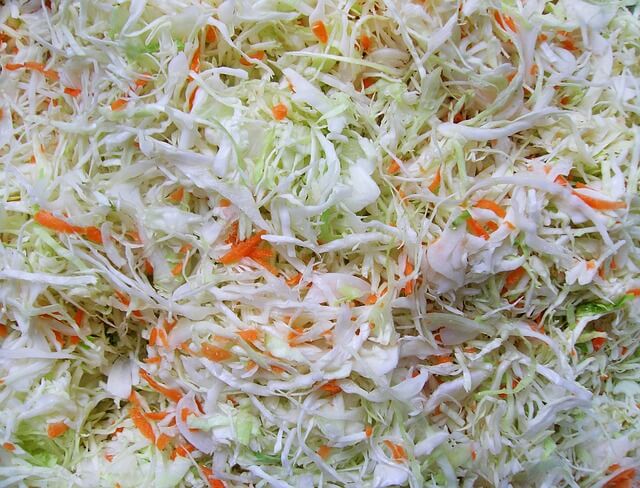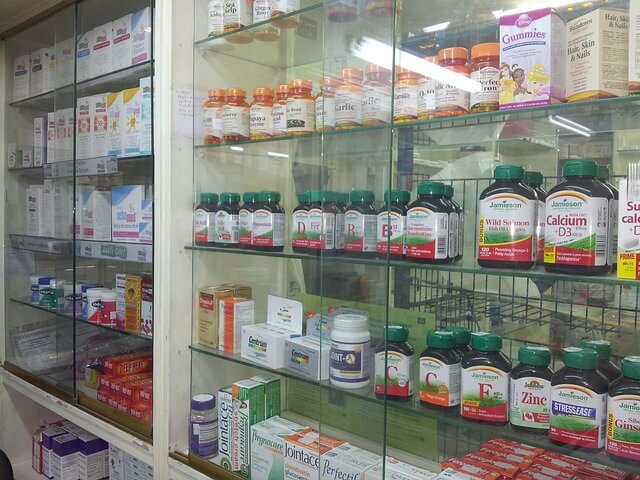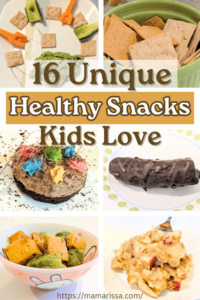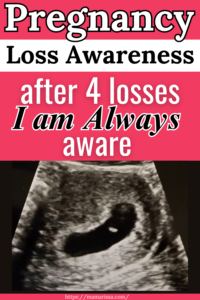Your cart is currently empty!
Infant Reflux: Real Causes and Real Solutions
I’m on a mission – one I should have been on a long time ago. I am searching for the underlying cause of my daughter’s infant reflux. Just saying that sounds overwhelming to me, which is why I have not done as much as I should have to figure it out sooner.
I kept telling myself she would outgrow it. But here we are 15 months into her little life and she’s still struggling.

Everyday situations (such as riding in the car, how well she sleeps and how often she nurses) have improved to the point of being mostly manageable instead of very difficult. But I know this has more to do with her tolerance than improvement of her internal condition, because I still hear and see all the reflux signs and symptoms on a regular basis.
In all honesty, I have had a hard time believing there is anything I can do about it. I’ve put off doing anything overly extreme, because the more moderate measures I have taken in the past have not had an ounce of effect on her reflux.
But her body is not healing itself as I had hoped. And I can’t just let it go any longer if there is any chance I can do something to heal her little body. So I am shopping the World Wide Web, looking for the answer, and I’m going to share my findings with you.
Please note that I am not a medical professional and nothing in this post is meant to be medical advice. .Please speak with your baby’s pediatrician regarding the best treatment for your baby’s acid reflux.
What are the Real Causes of Infant Reflux?
When you search infant reflux causes online, you will likely encounter the explanation that the most common cause is a still-developing lower esophageal sphincter (LES) which does not remain closed as it should, allowing milk and food to travel back up and out of the esophagus from the stomach.
This is common in most if not all newborns even if they do not experience problems from it.
Another commonly suggested cause is an allergy or intolerance to dairy, gluten or other food that is in the mom’s diet and creating irritation in the intestines.
But when you dig deeper, there are some more insightful ideas about what is causing such discomfort for so many little ones.
Get my exclusive advice on handling reflux in children for FREE when you enter your email at the bottom of the page!
In this article, Chris Kresser explains more about why the LES sometimes malfunctions by opening when it shouldn’t. He attributes a lot of cases to something called SIBO – Small Intestinal Bacterial Overgrowth. This condition leads to excess gas in the belly which puts pressure on the LES, causing it to open.

Healthline concurs with this theory, stating that, while more research is needed, scientists are finding a relationship between high carb diets and acid reflux. Having a lot of carbs in the digestive system feeds bacteria which creates gaseous pressure in the belly, forcing stomach contents up past the LES.
Similarly, Medical Medium describes a compromising process of bacterial overgrowth and toxic buildup in the liver which produces an overabundance of the wrong kind of acid in the stomach of those with acid reflux.
Medical Medium also says there is not enough of the good kind of acid in the stomach in these situations and blames a weak liver as the culprit no one recognizes in the treatment of heartburn.
Dr. Axe also addresses the acid reflux issue. Like Healthline, he notes that research is beginning to point to carbs as one of the common causes of reflux.
He also indicates, similar to Medical Medium, that the ultimate problem is a lack of necessary acid in the stomach (contrary to popular medical opinion) which makes it difficult for the body to properly digest carbs, thereby leaving them to feed bacteria and create gas.
Offering a slightly different perspective, Dr. Jonathan Aviv, an ENT, told WellBe that the requirement to add acid to canned, bottled and boxed foods which came into effect in the 1970s has been a contributing factor to the rise of acid reflux among Americans.
He notes that the switch to using high fructose corn syrup instead of cane or beet sugar has also been a problem since this type of sugar is highly inflammatory and causes the LES to weaken. The combination of increased acid and a frequently opening LES, he says, encourages a lot of inflammation.
Dr. Will Cole sums it up nicely when he says a dysfunctional LES is the real problem behind acid reflux, but too much pressure in the abdomen is what causes the LES to dysfunction.
He believes diet, food intolerances, medications, environmental toxins, chronic infections and chronic stress can all lead to low acid levels in the stomach and inflammation in the digestive system.
It has been known for a while that a weak LES is what allows infant reflux to occur in newborns. But once children are past the age of having an underdeveloped LES, an overabundance of bad bacteria in the intestines is to blame for the excess gas it produces which causes stomach contents to be forced back up the esophagus.
What Treatment Options Address the Root Problem?
Given this relatively new discovery that a lack of stomach acid (which keeps harmful bacteria at a minimum when it’s at optimal levels) is behind the reflux epidemic, acid suppressing medications do not sound like a logical treatment option, do they?

As Kresser points out, prevention is the best option if you are thinking ahead. Moms can do things to promote their baby’s gut health even before becoming pregnant. The healthier mama’s gut is, the healthier baby’s gut will be.
The things Kresser recommends doing to give your baby the best start with their tummies are eating fermented foods, taking prebiotics and probiotics, delivering vaginally if possible and breastfeeding.
In terms of treatment, the protocol is similar: Eating fermented foods, mom and baby taking prebiotics and probiotics and avoiding foods that exacerbate digestive issues.
Healthline advocates a diet low in carbs to help eliminate bacteria. However, Medical Medium encourages consumption of healthy, plant-based carbs such as fruit and various types of potatoes and squashes because of their disease-fighting properties.
Medical Medium also suggests three main things to focus on for liver and ultimately reflux healing: 1) Increasing hydrochloric acid in the stomach (which is the good acid that kills bacteria) by drinking celery juice, 2) killing harmful bacteria by eating healthy carbs and fruit and 3) strengthening the liver by eating lots of fruits and veggies.
It is recommended that you (and baby) avoid common problem foods as well, which will help the liver heal. These include dairy, gluten, eggs and animal proteins (as well as other high fat foods that stress the liver). The reason behind eliminating these is that the bacteria you want to kill off feeds on these types of foods.
Dr. Axe’s dietary recommendations include limiting or eliminating grains, refined vegetable oils and processed and sugary foods, as well as introducing organic, GMO-free and probiotics-rich foods into your diet.
He also suggests eating foods such as leafy greens, cucumbers and squash. He disagrees with Medical Medium on some food choices, encouraging the use of yogurt for its probiotics as well as healthy fats like coconut oil and olive oil. Additionally, he advises a probiotic supplement may be beneficial.
Dr. Aviv’s solution to healing reflux is to avoid the 6 main foods that loosen the LES (coffee, chocolate, alcohol, mint, raw onion and raw garlic) and foods that are excessively acidic (sugary drinks, citrus, tomato sauce, vinegar and wine).

Along with elimination, Dr. Aviv recommends eating organic, non-GMO produce, cucumbers, watermelon, flax seeds and whole foods.
Dr. Cole advocates eating fermented foods and healing fats such as coconut oil as well as taking an HCI supplement (hydrochloric acid) or another digestive enzyme.
Although there are conflicting ideas about the best diet for healing acid reflux, there are some areas in which everyone agrees such as eliminating processed and sugary foods, eating fermented foods (like kimchee, kombucha and sauerkraut), eating organic, non-GMO fruits and veggies and taking a probiotic.
Are These Solutions Safe for Babies?
Fermented Foods
I remember being almost 40 weeks pregnant when my mom offered me some kombucha. At the time, I was worried that it might not be safe for my unborn child, so I declined.
But to promote gut health early on, eating fermented foods during pregnancy actually appears to be a safe option.
Registered dietitian nutritionist, Carly Cooley, told City Parent that fermented foods are safe for pregnant women to consume and that kombucha (fermented black tea) does not contain enough alcohol to pose any harm to the unborn baby.
Likewise, Natalie Allen, a registered and licensed dietitian and clinical faculty member in the Biomedical Sciences Department at Missouri State University, told Romper that generally, fermented foods are safe to eat while pregnant.
So what about feeding these foods to baby directly once he starts solids to help encourage gut health and eliminate or reduce lingering infant reflux?
Although there has not been enough research on fermented food use in babies and children to create guidelines, giving little ones fermented foods to eat from the time they start eating solids has been associated with remarkably positive outcomes in the health of their digestive systems, which often leads to health in other areas of their bodies (Source).
Update 6/3/2024: I did not know at the time that I wrote this article that my daughter actually had a more involved problem with her gut. It wasn’t until she developed severe early childhood tooth decay that we discovered she had a candida overgrowth. This may very well have caused or contributed to her infant reflux. Interestingly, the proposed diet for eliminating a candida overgrowth is almost identical to the suggestions I found in my research for this post.

In America, we tend to be more hesitant to give babies certain foods while other countries dive in with menu items that might shock us. In Russia, it is normal to start giving babies kefir at six months old (Source).
It’s always a good idea to introduce new foods to your baby slowly and watch for signs of a bad reaction, but there are a lot of women who do give their infants fermented foods from the time they start solids.
Probiotic Supplements
According to this article, probiotic supplements have been shown to be beneficial for reducing infant reflux and other tummy troubles in babies without any adverse effects.
Healthline likewise acknowledges that probiotic use in infants has generally been proven to be safe. However, because they are not regulated by the FDA (Food and Drug Administration) and because every baby has unique needs, it is best to consult your baby’s pediatrician before starting one.
NPR (National Public Radio) cautions that because probiotics are not regulated, the dosage and quality between products (and even batches) can vary.
Daniel Merenstein, Family Physician at Georgetown University, told NPR that probiotics should be used in different doses and for different lengths of time for different diseases just like antibiotics. He feels that more research is needed before everyone readily accepts probiotic supplements into their child’s diet.
As with any medical intervention, there are probably unknown risks (however minimal they may be) with giving a probiotic to your infant. But for the mama who is at her wits end trying to soothe her miserable baby, it is certainly a safer option to try before turning to medication (read my post on Why I Didn’t Medicate My Reflux Baby for more info on the harmful effects of infant reflux medication).

What to Do with this Information
Isn’t it refreshing to know that there are natural ways to heal the root cause of your baby’s infant reflux instead of just medicinally treating the symptoms? Now what are you going to do about it?
I, for one, am going to put myself and my daughter on a four week plant-based diet with lots of fermented foods to see how her reflux responds. I have gone on fruit and veggie diets in the past and they have always reset my digestive system, so I’m hoping it will do the same for my daughter, particularly with the addition of the natural probiotics in fermented foods.
I’ll let you know how it goes!
Have you tried natural methods of healing your baby’s tummy troubles? Tell me about your experience in the comments!
Read part 2 of my infant reflux research here.


8 responses to “Infant Reflux: Real Causes and Real Solutions”
[…] months old. At that point, my ability to accomplish anything was still severely hindered by her reflux which required lots of mommy comfort and nursing […]
[…] you can nurse a one month old baby too often – especially a baby who is suffering with infant reflux as mine […]
[…] Constant nursing was the sign my daughter’s pediatrician recognized as reflux (see why we didn’t medicate her reflux here and my research on underlying causes of reflux here). […]
[…] so very grateful I had that relaxed mindset. I had no idea at that time what lay ahead of me with a reflux baby who wanted to nurse constantly and would not stay asleep unless she was […]
[…] If your baby is diagnosed with acid reflux, read my post on why I chose not to medicate my reflux baby before automatically turning to medicine. Also check out the real causes of infant acid reflux. […]
[…] If you are a reflux-baby-mama, you and I already have a very strong connection. You and I both understand the difficulty, frustration, heartbreak and confusion involved in having a baby with infant reflux. […]
[…] consultant said it is rare for a woman not to get her period back within a year of giving birth, my reflux baby (toddler) still nurses frequently around the […]
[…] my daughter’s case, she nursed so frequently to sooth her infant reflux that I just worked in a solid meal whenever it was […]










Leave a Reply